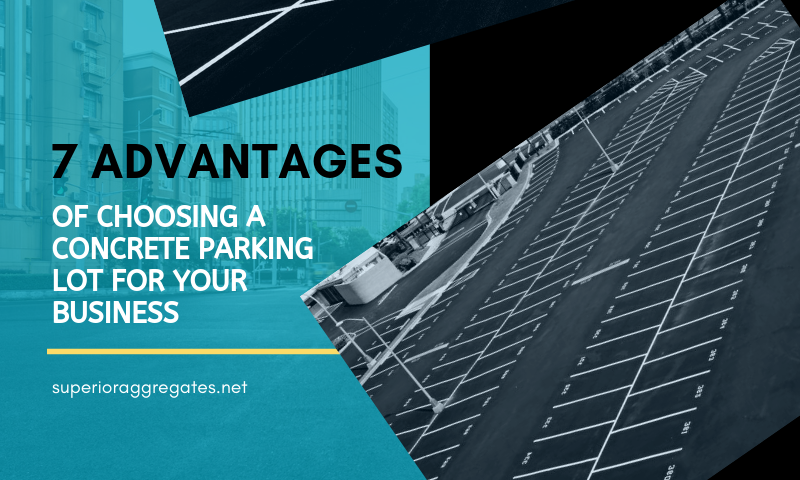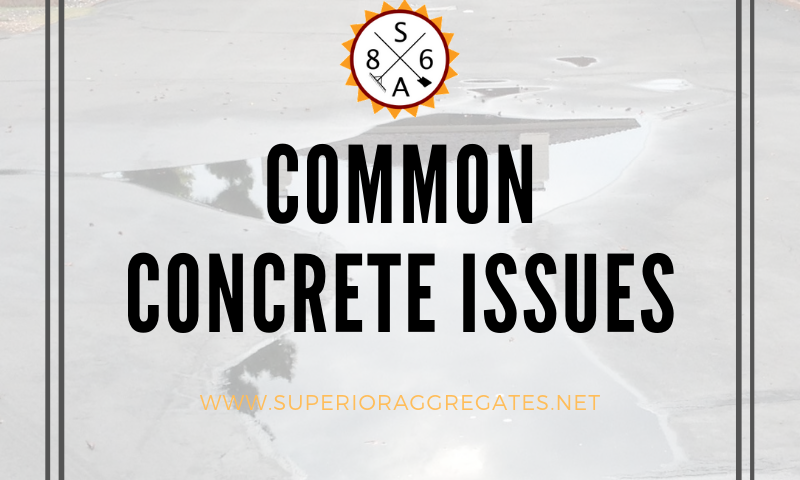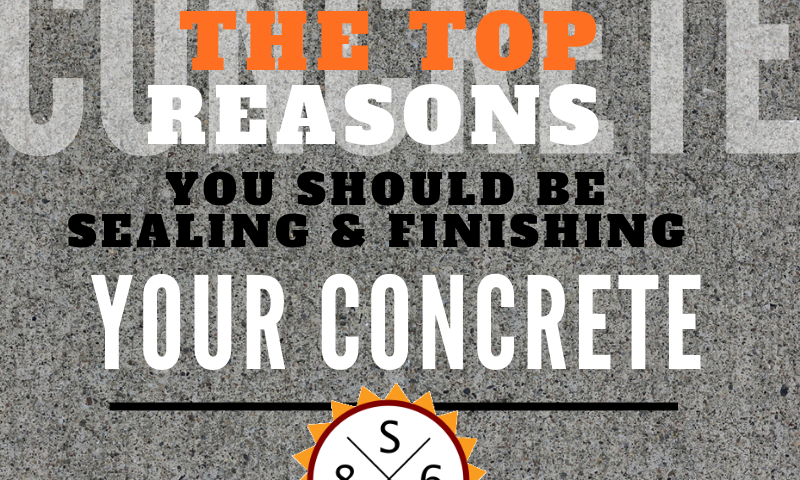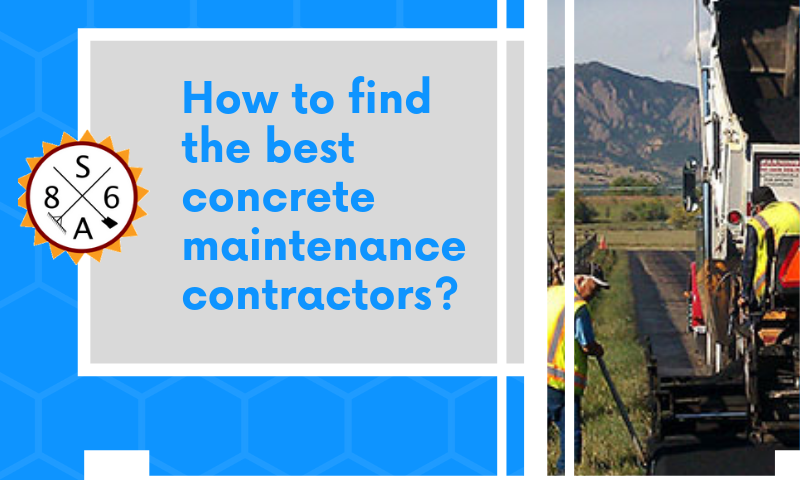
7 Advantages of Choosing a Concrete Parking Lot for your Business
Don’t underestimate the value of a great parking lot to your business. From prospective clients to potential employees, your parking lot is a big part of the first impression your building makes. Obviously, you want that impression to be a good one. An adequate number of spaces is just the beginning. The parking lot should also be a safe environment for guests.
Asphalt is a popular car park material. It is inexpensive and quick to install. Smart business owners think long-term, however. More and more companies are choosing a concrete parking lot instead. Here are seven reasons to consider a concrete parking lot, even if the bid is a little higher:
1. Stronger
Concrete is far more durable than asphalt. It keeps its form without buckling even under the weight of heavy traffic and heavier vehicles. If you expect high traffic or visits from a lot of trucks, concrete is the material that can take the beating.
2. Longer-Lasting
As a business owner, you have a keen eye to “return on investment.” A lower price tag is not a great value if the product has to be replaced in half the time or less than the pricier option. In this case, concrete lasts far longer than asphalt, making it a better investment long-term.
3. Better-Looking
Don’t forget that crucial first impression. Even a basic concrete parking lot typically looks better than its asphalt cousins. Better yet, concrete can be textured, colored, and decorated to create a unique, appealing aesthetic customized to your business.
4. Better for the Environment
Most of the materials in concrete are natural and chemical-free. “Sustainable concrete,” which contributes to a stable rainwater cycle, is available as well. In the summer heat, asphalt parking lots soften and seep oils and chemicals, becoming unpleasant and unsafe to walk on. A concrete parking lot absorbs less heat, which keeps the office park from turning into a “heat island” that damages the local flora and fauna.
5. Low-Maintenance
Asphalt requires annual service and preventative maintenance. Concrete parking lots need service far less frequently. If you have enough to keep you busy at your company without having to schedule service calls every year, a concrete parking lot is the way to go.
6. Better Lighting
Asphalt is black or dark gray because it absorbs more light than it reflects. In contrast, concrete reflects three times as much light as asphalt. This reflected light reduces the amount of electric light required to keep the parking lot well-lit. A well-lit parking lot is crucial for safety, as it deters crime. Easy lighting also reduces electric bills.
7. Long-Term Cost Savings
Lower utility bills. Less maintenance. Longer lasting. You can probably see a pattern emerging. Yes, the initial installation cost can be higher and more time-consuming. Over the long term, however, the costs associated with a concrete parking lot can actually be a lot lower than an asphalt one, in terms of both cash and time expenditure.
Installing or replacing a parking lot is a critical investment in the life of a business. Remember, the best solution isn’t always the least pricey solution. From eco-friendliness to cost savings, consider the long-term advantages of a concrete parking lot.
Don’t underestimate the value of a great parking lot to your business. From prospective clients to potential employees, your parking lot is a big part of the first impression your building makes. Obviously, you want that impression to be a good one. An adequate number of spaces is just the beginning. The parking lot should also be a safe environment for guests.
Asphalt is a popular car park material. It is inexpensive and quick to install. Smart business owners think long-term, however. More and more companies are choosing a concrete parking lot instead. Here are seven reasons to consider a concrete parking lot, even if the bid is a little higher:
1. Stronger
Concrete is far more durable than asphalt. It keeps its form without buckling even under the weight of heavy traffic and heavier vehicles. If you expect high traffic or visits from a lot of trucks, concrete is the material that can take the beating.
2. Longer-Lasting
As a business owner, you have a keen eye to “return on investment.” A lower price tag is not a great value if the product has to be replaced in half the time or less than the pricier option. In this case, concrete lasts far longer than asphalt, making it a better investment long-term.
3. Better-Looking
Don’t forget that crucial first impression. Even a basic concrete parking lot typically looks better than its asphalt cousins. Better yet, concrete can be textured, colored, and decorated to create a unique, appealing aesthetic customized to your business.
4. Better for the Environment
Most of the materials in concrete are natural and chemical-free. “Sustainable concrete,” which contributes to a stable rainwater cycle, is available as well. In the summer heat, asphalt parking lots soften and seep oils and chemicals, becoming unpleasant and unsafe to walk on. A concrete parking lot absorbs less heat, which keeps the office park from turning into a “heat island” that damages the local flora and fauna.
5. Low-Maintenance
Asphalt requires annual service and preventative maintenance. Concrete parking lots need service far less frequently. If you have enough to keep you busy at your company without having to schedule service calls every year, a concrete parking lot is the way to go.
6. Better Lighting
Asphalt is black or dark gray because it absorbs more light than it reflects. In contrast, concrete reflects three times as much light as asphalt. This reflected light reduces the amount of electric light required to keep the parking lot well-lit. A well-lit parking lot is crucial for safety, as it deters crime. Easy lighting also reduces electric bills.
7. Long-Term Cost Savings
Lower utility bills. Less maintenance. Longer lasting. You can probably see a pattern emerging. Yes, the initial installation cost can be higher and more time-consuming. Over the long term, however, the costs associated with a concrete parking lot can actually be a lot lower than an asphalt one, in terms of both cash and time expenditure.
Installing or replacing a parking lot is a critical investment in the life of a business. Remember, the best solution isn’t always the least pricey solution. From eco-friendliness to cost savings, consider the long-term advantages of a concrete parking lot.




